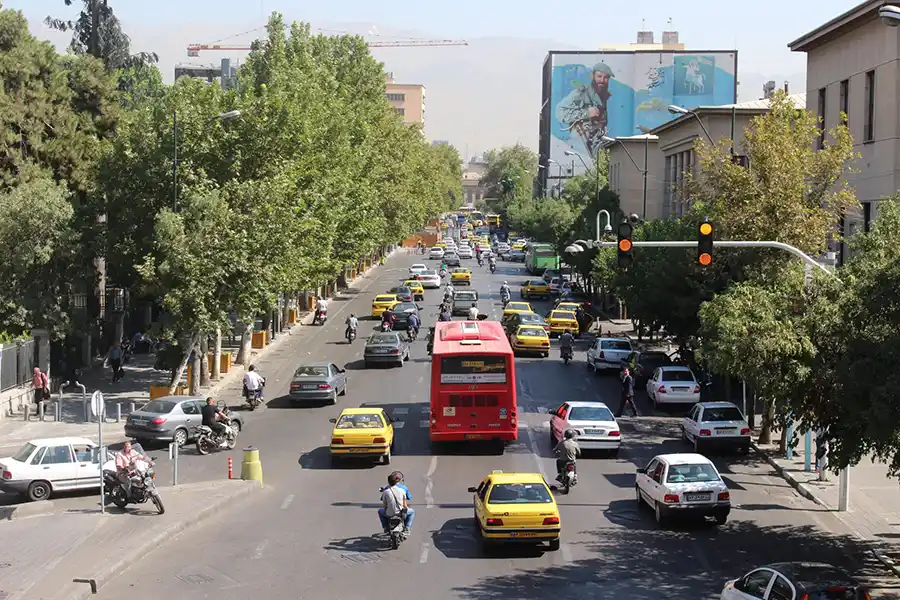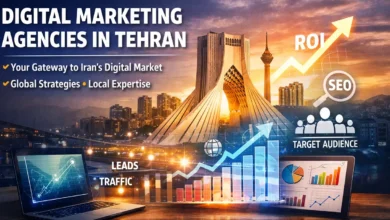What You Need to Know About Iran’s Startup Ecosystem
Practical Guide to Understanding the Key Players, Challenges, and Opportunities

Iran’s startup ecosystem (اکوسیستم استارتاپی ایران) has quietly been gaining momentum, driven by a blend of youthful ambition, innovative ideas, and a growing support network of investors and incubators. While Iran’s tech scene doesn’t always get the attention it deserves on the global stage, it’s a fascinating space for those interested in emerging markets. In this guide, we’ll explore Iran’s startup landscape, its key players, and the lesser-known insights that typically don’t make it into mainstream media.
1. Key Players: The Movers and Shakers of the Ecosystem
Several prominent companies and organizations are leading the charge in Iran’s startup ecosystem:
- Cafebazaar (کافه بازار): Often referred to as the “Iranian Google Play,” Cafebazaar is a dominant app marketplace, boasting millions of users. It has played a major role in developing Iran’s mobile app market. Visit Cafebazaar.
- Digikala (دیجیکالا): As Iran’s largest e-commerce platform, Digikala holds a market position similar to Amazon in Western countries. It laid the groundwork for the e-commerce boom that followed. Visit Digikala.
- Snapp (اسنپ): Snapp started as a ride-hailing app but has since evolved into a super-app, offering services ranging from food delivery to healthcare. It mirrors global giants like Uber and Grab. Visit Snapp.
- Avatech (آواتک) and DMOND (دموند): These accelerators provide critical support, including mentoring and investment, to help young startups bring their ideas to life. They’re key players in nurturing Iran’s growing tech scene.
- Sarava (سرآوا) and FANAP (فناپ): As major investment firms, Sarava and FANAP fund some of the most promising Iranian tech startups, often taking risks where others hesitate. Visit Sarava | Visit FANAP.

2. The Untold Stories: What You Won’t Hear in the Media
While the successes of these companies are widely reported, there are lesser-known aspects of Iran’s startup ecosystem that are worth mentioning:
- Resilience Amid Sanctions and Economic Fluctuations: Iranian entrepreneurs have become experts at thriving under uncertainty. Between sanctions, currency volatility, and regulatory obstacles, the startup culture in Iran has developed a unique strength in problem-solving and adaptation.
- Challenges with Global Expansion: Sanctions create significant challenges for Iranian startups looking to expand internationally. Access to global services like AWS and international payment systems is often restricted, forcing these companies to develop localized alternatives.
- Navigating Government Regulation: While the Iranian government has supported a knowledge-based economy with tax breaks and incentives, it’s important to understand that regulatory hurdles can slow innovation. Many startups must be agile in navigating bureaucratic processes.
- Cultural Influence on Business: In Iran, business is highly relationship-driven. Trust and personal connections often play a much larger role in negotiations than in more transactional markets. Building long-term relationships is critical to success.
3. A Thriving Scene Under the Radar
In addition to the big names, there’s a rapidly growing underground scene of smaller startups and tech enthusiasts. These innovators often work quietly, focusing on niche areas with high potential:
- Blockchain and Fintech: Despite legal hurdles, there’s growing interest in blockchain and decentralized finance (DeFi) within Iran. Many blockchain startups are pushing the boundaries of innovation while finding ways to comply with—or creatively sidestep—existing regulations.
- HealthTech and EdTech: Iran’s large, young population makes HealthTech and EdTech fertile ground for innovation. Startups in these sectors are developing telemedicine platforms and online learning tools, especially as access to some global solutions is limited.
Blockchain and Fintech in Iran: Innovating Against the Odds
Iran’s blockchain and fintech sectors are quietly gaining traction, driven by the need to find alternative financial systems amidst international sanctions. While traditional banking and global payment systems are often out of reach, local entrepreneurs are embracing blockchain technology to create innovative solutions. Decentralized finance (DeFi) platforms and cryptocurrency exchanges have become hotbeds of activity, allowing Iranians to navigate financial restrictions in ways that were previously unimaginable.
However, the regulatory environment is still in its early stages, and the government remains cautious about fully embracing these technologies. Despite this, startups in Iran’s blockchain space continue to innovate, with some developing homegrown solutions that offer a glimpse into a future where Iran could become a regional leader in fintech.
The challenges are steep, but so is the potential for growth. Investors and tech enthusiasts looking to engage with Iran’s blockchain scene will need to stay ahead of shifting regulations while appreciating the resilience and creativity that have come to define this space.
HealthTech and Edtech in Iran: Addressing Local Needs with Innovative Solutions
In a country with a young, tech-savvy population, the HealthTech and EdTech sectors are making significant strides in Iran. With gaps in access to international technologies and services, Iranian startups are stepping up to address critical needs in education and healthcare. These sectors, driven by both demand and necessity, have seen rapid innovation in recent years.
On the HealthTech front, telemedicine platforms are growing in popularity, offering remote consultations and medical advice to patients in both urban and rural areas. Given the limitations of the healthcare system in reaching every corner of the country, startups are finding creative ways to bridge the gap. Wearable health devices, mental health apps, and AI-powered diagnostic tools are some of the technologies being explored to improve the overall health landscape in Iran.

Similarly, EdTech is rising to the occasion, especially after the disruptions caused by the COVID-19 pandemic. Online learning platforms have emerged as a crucial part of the education system, offering everything from school tutoring to specialized courses in coding and digital marketing. Iranian entrepreneurs are developing localized platforms that cater to the specific needs of students and professionals who seek quality education without relying on international providers.
Both sectors hold massive potential, as they address fundamental issues with scalable, tech-driven solutions. As more startups enter the space, HealthTech and EdTech are likely to become pillars of Iran’s broader startup ecosystem.
4. Practical Tips for Foreign Entrepreneurs and Investors
If you’re considering tapping into Iran’s startup ecosystem, here are some practical tips:
- Know the Legal Landscape: Iran’s regulatory framework can be complex, especially for foreign investors. Having a reliable local partner or legal advisor is essential to avoid potential pitfalls.
- Tap Into Iran’s Talent Pool: Iran boasts a highly educated workforce, particularly in engineering and IT. Leveraging this talent is a competitive advantage, particularly for tech startups.
- Be Patient and Build Relationships: Business in Iran moves at a different pace than in many Western markets. Building trust takes time, and long-term relationships are valued more than quick wins.
Iran’s startup ecosystem: A Market Full of Potential
The Iranian startup ecosystem offers enormous untapped potential. While it presents unique challenges, it also comes with opportunities that savvy investors and entrepreneurs should not overlook. Iran’s resilient, creative, and determined entrepreneurs are building something remarkable—despite the obstacles. For those willing to invest time and energy into understanding the market, the rewards can be substantial.
P.S.
More about Snapp

Snapp’s rapid expansion is a testament to its adaptability in meeting the evolving needs of Iranian consumers. With millions of users across the country, the platform has diversified its offerings to include everything from grocery deliveries to hotel bookings, positioning itself as a vital part of daily life in Iran. As sanctions and international restrictions have limited access to global platforms, Snapp has stepped in to provide homegrown solutions that rival international competitors.
What sets Snapp apart is its ability to integrate various services into one platform, creating a seamless experience for users. Whether you’re booking a ride, ordering dinner, or scheduling a doctor’s consultation, Snapp offers a one-stop solution that continues to innovate. This level of integration, along with its commitment to understanding local needs, has made Snapp a leading player in Iran’s startup ecosystem.
Additionally, Snapp’s success has been a catalyst for job creation, offering opportunities to thousands of drivers, delivery couriers, and local vendors. As it continues to grow, Snapp is exploring new areas like financial services and expanding its reach into smaller cities, solidifying its role as a cornerstone of Iran’s digital economy.
Reference:






